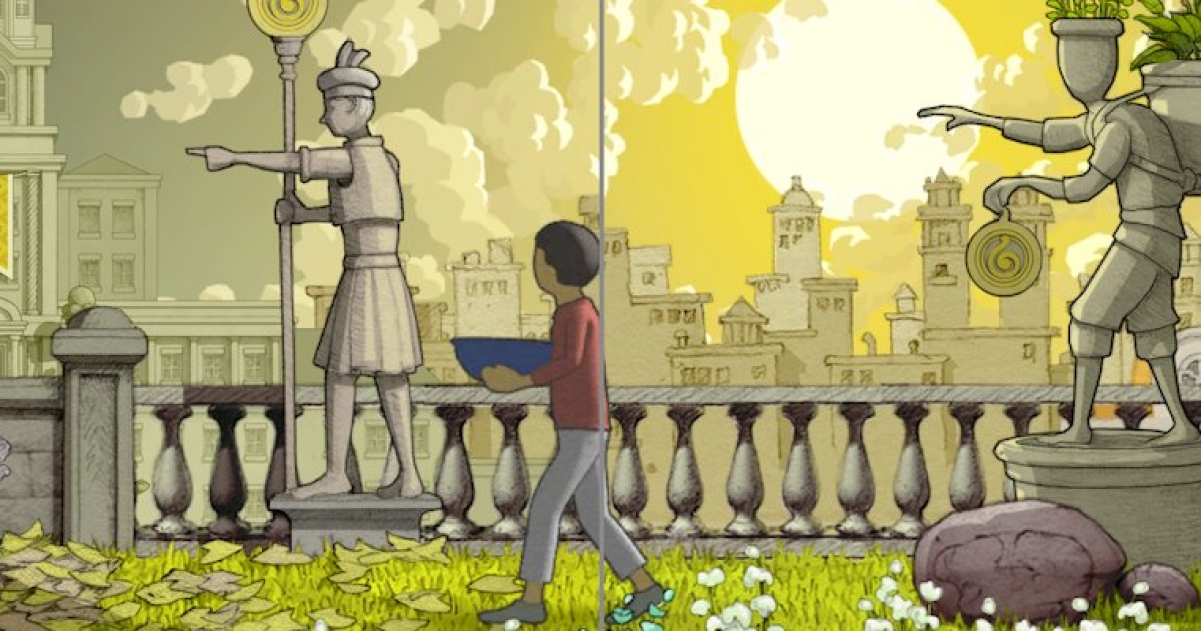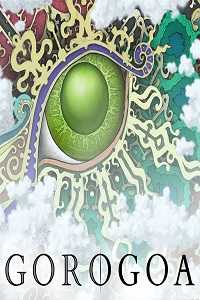

Why? It’s a question that I can feel present in every pile of books he collected, every diagram drawn and cast aside. When he first does though, he’s brutally punished for it. The goal presented throughout the entire experience is simply to collect the apples, and present them to Gorogoa. His struggle comes into a sharp, empathetic focus with the games penultimate twist.

Whereas all he had to do as a child is wander from place to place and wait for what he wanted to fall into his hands, age seems to bring the man nothing but anxiety about the same goals. What consumes the man as a young adult, in middle age, in seniority, is something that seemed almost effortlessly obtained as a child.

The old man ascends, finally getting the reward he sought from the god, and the game is done.Īlthough the boy’s goal is to collect five different colored fruits, it’s easy to see that the rainbow of apples represent something larger, something worthy of a life’s obsession. Unlike the first time though, Gorogoa seems fundamentally satisfied. His reflection on these different eras achieves what he failed at for so long the offerings, lost a lifetime ago, re-emerge. The game whirls us through every period that we’ve seen before, old puzzles returning in ways that are simultaneously novel and nostalgic. The man, old and grey at the end of his life, returns to the tower from which he once fell. He’s fallen asleep staring out the window, mirroring the position of his first sighting of Gorogoa many years ago.ĭespite its enigmatic nature, the game does give us a true conclusion. That bookshelf, vital as it may be to the player, seems mostly forgotten by the man. They provide the power to great wheels, rolling forth architecture and time to a point where the path forward is accessible to him as a boy. But because of the stories non-linear nature, his research is actually invaluable it’s only through his discoveries that we’re able to bring the boy the fruit in the first place.įor example, the books on his shelf (as an adult) literally change his world. He seems totally companionless, and his research seldom appears to bring him any joy. We often find him slumped over at his desk or striving to read even after his lantern has gone out. In contrast to his whimsical childhood, our character spends his adulthood in a bitter marriage to this thankless work. Permanently crippled by this encounter, the rest of his days are consumed by research on the god and related aspects of the unknowable.

The boy looks into the face of Gorogoa, the fruit crumbles to dust, and he’s thrown into a life of hardship. When he finally presents it to the god though, his gifts are rejected. As a boy, the main character faces little hardship in this task he simply walks along the path laid out by the player and the fruit quite literally falls into his hands. The details of the plot are slippery, but center on a god (the titular “Gorogoa”) and the man finding the proper offerings to satisfy it. However, as freely as we’re able to experience all points of this man’s life, he can’t help but remain fixated on his childhood. Memories from his middle-aged self will directly impact his adolescent experiences, constellations will shift and disappear, and entire buildings will be ravaged by war within moments of real-time interaction. Our anchor point is one man, but the game is obstinately un-linear with its timeline. When playing Gorogoa, all time appears to exist at once. But Gorogoa’s casual melding of perspective, space, and age serves a more profound purpose: its mechanics are a game-spanning meditation on life, perseverance, and understanding.
#Gorogoa platforms series
Its playfulness with the laws of physics led me to assume that the game’s narrative was equally airy, just a series disconnected vignettes for the sole purpose of creating puzzles.
#Gorogoa platforms windows
These windows are malleable though a doorway in one square might be a portal into an adjacent square’s reality, regardless of differences in scale or year. Its gameplay is divided into four tiles, each of which function as a sort of window into a different world. Gorogoa initially feels like an experience totally unshackled from our usual expectations of time and space. We recommend that you play through Gorogoa before reading this piece. Jacob Geller attempts to unravel Gorogoa’s knottiest riddle.


 0 kommentar(er)
0 kommentar(er)
